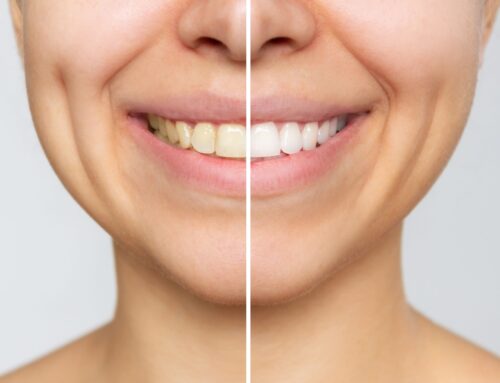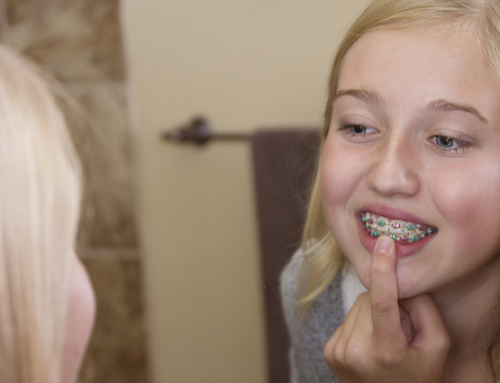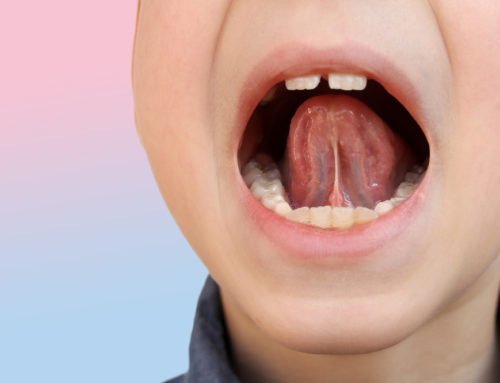
Teeth Grinding In Kids and What To Do About It
Teeth grinding, or bruxism is seen in about 30% of children. In fact, most kids who grind their teeth are unaware of it because it often happens while they are asleep. Also, some kids clench their jaw while awake yet don’t realize they’re doing it.
Why Do Kids Grind Their Teeth?
Looking at your child’s overall health and emotional stability may help you to find what’s triggering the jaw clenching or teeth grinding. It may also help you figure out just how severe their bruxism may be.
Bruxism in children is usually caused by one or more of the following:
- Stress or anxiety
- Minor illnesses
- Poor teeth alignment (malocclusion)
- Jaw growth
- Allergies
- Sleep disorders
- Losing baby teeth
Before you can reverse or prevent teeth grinding habits, you have to understand the cause of it. Getting to the bottom of why it is happening will determine treatment options and plans provided by your pediatric dentist.
There are several reasons why your child may develop bruxism. Some medical conditions, such as cerebral palsy, can cause your child to develop this habit. Also, some medications can cause grinding of the teeth. However, if not from a pre-existing condition or medication, the most common reasons are anatomical and psychological.
How To Spot Bruxism In Your Child
Not exactly sure whether or not your child is suffering from bruxism? Along with grinding noises, if your child is complaining of jaw or facial pain, issues when chewing, or tooth sensitivity, bruxism just may be the issue.
Going to routine dental check-ups and cleanings will help you spot any abnormal wear-and-tear on your child’s teeth. Your child’s pediatric dentist can help to diagnose if your child looks to be suffering from some nightly teeth grinding.
Symptoms of Teeth Grinding
- Sore jaw muscles
- Face pain
- Pain while chewing
- Neck and shoulder pain
- Irritability
- Broken teeth
- Toothaches
- Chipped tooth enamel
- Unusual wear and tear
- Abnormal tooth sensitivity
If you’re worried that your child is grinding their teeth, you might hear it. Kids might experience awake bruxism, but most often it happens while they sleep. You’ll hear them as they clench or grind their teeth. If you hear it, you can help them realize they’re doing it.
If you notice that you or your child have symptoms of bruxism reach out to your dentist. Schedule an appointment with one of our pediatric dentists at Snodgrass-King.
What Do I Do If I Or My Child Suffers From Bruxism?
Wondering what to do? Don’t be too worried. Thankfully, most children grow out of child bruxism by their preteen years – hooray! – so thankfully, serious treatment isn’t regularly necessary beyond being diagnosed. You should first visit your dentist so the bruxism can be diagnosed and treatment can be recommended.
Treatments for Bruxism
As mentioned, intense treatment isn’t always necessary but it will depend on the cause of the bruxism. The most common treatments for sleep bruxism include:
- Mouth splints to keep the teeth from being ground together while asleep
- Mouth guards to protect your teeth
- Correction by an orthodontist or a dentist
How To Prevent Bruxism
Reducing or eliminating triggers of tooth grinding can help relieve symptoms. Stress is a common cause, so working to destress your environment and working through emotions can make it easier to reduce overall tooth grinding. Also, eating a diverse and healthy diet along with staying properly hydrated can overall affect your mental health and reduce stress.
Taking these precautions may solve the issue at hand. For some special cases, a custom-fit nightguard may be prescribed, also known as a type of mouthguard that is worn when sleeping. This will keep your child from causing too much wear to teeth and soft tissue in the mouth.
Anatomical Causes of Bruxism
Anatomically, if your child’s top and bottom teeth are not aligned properly, it can lead to bruxism and an unhealthy amount of wear and tear. This can be identified during an evaluation by your pediatric dentist and may also require x-rays.
If your teeth seem to be aligned, you don’t have any pre-existing conditions and aren’t on any medications that may cause bruxism, there is yet another potential cause.
Psychological Causes of Bruxism
Psychologically, teeth grinding and clenching can be caused by stress, nervousness, anger, or anxiety. These feelings might come from school, relationships with others, and even family situations.
How To Prevent Nighttime Teeth Grinding
If your child is approaching the age of 6 and is still grinding their teeth at night, it is probably time to start thinking about treatment options. If you have not done so already, notify your pediatric dentist and they will most likely suggest one of the following:
Night Guards:
A custom night guard, molded to your child’s teeth, will both prevent teeth grinding and protect your child’s teeth in the process of breaking the habit.
Dental Correction:
If your child’s teeth grinding is the result of teeth misalignment, your pediatric dentist may recommend dental correction.
Stress & Anxiety Management:
Teeth grinding can be caused by stress, nervousness, or other anxiety-related emotions. In this case, management of these emotions and conditions could be a sufficient treatment option.
Other:
Only in severe cases will the above not be effective. However, for your knowledge, additional treatment options may include muscle relaxants, botox, or medication for stress or anxiety.
These additional treatment options are not recommended for young children – only if they have reached teenage or young adult years and still struggle with teeth grinding.
As mentioned before, most children will outgrow bruxism, but in the event your child seems to have prolonged teeth grinding, it is important to start treatment. The key to treating bruxism is first figuring out the cause, and from there working with your pediatric dentist to fix the problem.
Visit Us Today
If you are concerned about your child’s teeth grinding or clenching habits, please reach out to us today. One of our pediatric dentists will evaluate your child, and we will work together with you to ensure the best overall dental health for your little one.
Snodgrass-King Dental Associates has 5 locations across Middle Tennessee (Mt. Juliet, Spring Hill, Murfreesboro, Franklin, and Cool Springs). Contact us today to see if we can help jump-start and be a resource for you or your child’s healthy, dental lifestyle.
We offer a variety of services for both children and adults. We can also address any orthodontic needs of children, teens, and adults. If you have any questions, call us today at (615) 771-1111.





